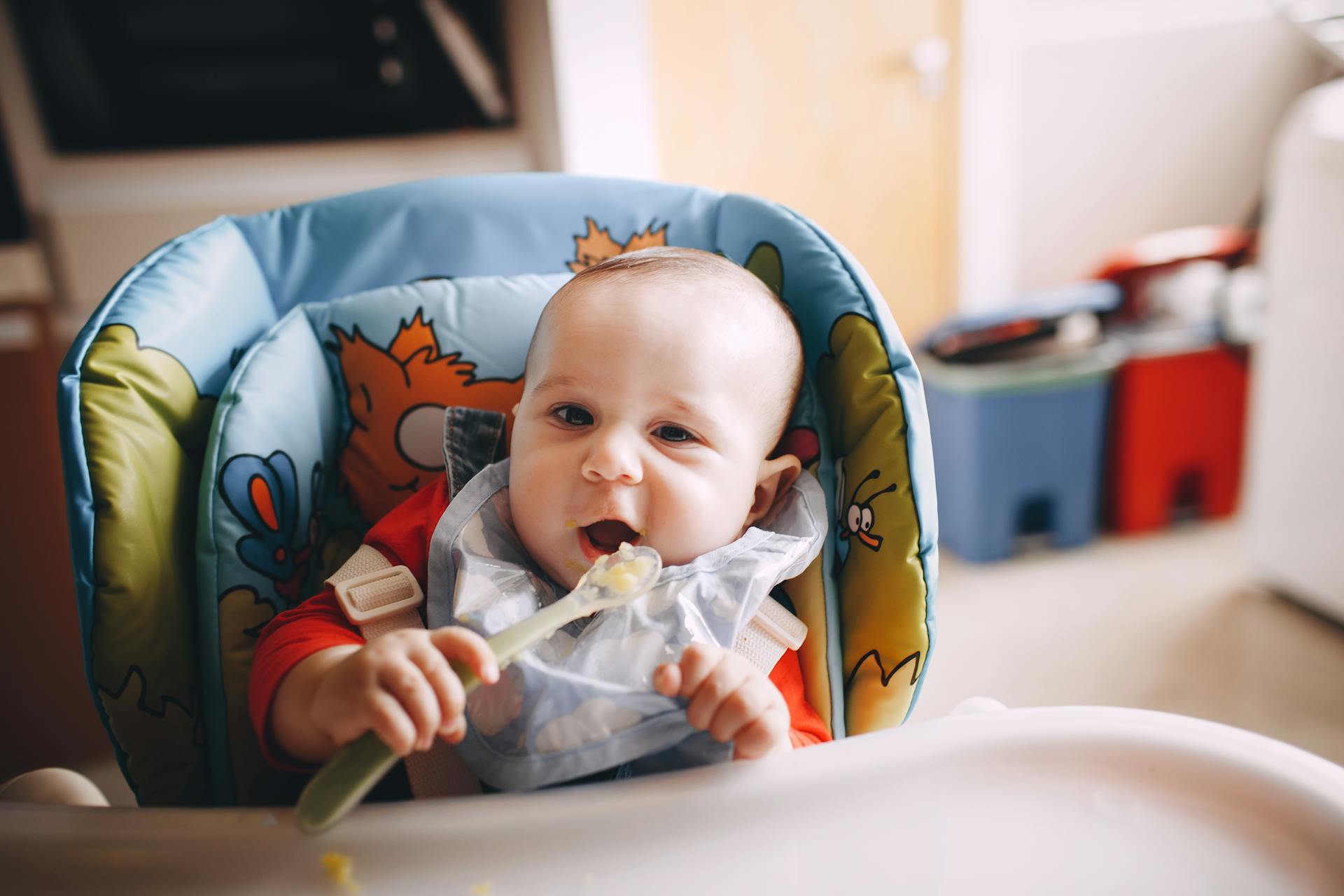Home
Pregnancy & Breastfeeding Tips for New Moms: Preconception, Pumping & Parenting Support
Starting Solids: Best Foods for Your Four- to Six-Month-Old

Starting Solids: Best Foods for Your Four- to Six-Month-Old
While breast milk or formula is recommended at least for a baby’s first six months of life, many moms start giving their baby solid foods four to six months after they’re born. Indeed, you should never start solid foods until you check with your pediatrician first, but when you finally get the approval from them, there are a few things to know first.
For starters, you naturally want your baby to have nutritious foods only, and below are some of the best foods that you can feed to them plus a few other things that are good to know.
How to Tell If Your Baby Is Ready for Solid Food
Before we tell you what to feed your baby, it’s a good idea to learn how to tell if your baby is even ready for solids in the first place. If your baby is good at the following three things, they are likely ready to eat solid foods:
- They act interested at meal time. If you eat around your baby and they show signs of wanting to eat “grownup” food, especially if they indicate that they want a bite of your food, it might be a sign that they are ready for solids.
- They can sit up in a high chair properly. Once your baby sits up straight in a high chair with their head erect, especially if they do so with steadiness and comfort, it’s likely that they can handle solid foods.
- They can move food from their mouths to the back of their throats. It’s no secret that babies have to learn how to take and swallow their food. Without this, they’ll likely not be able to eat solids without the food going everywhere.
In fact, for babies to eat solid foods, they have to be ready both physically and emotionally, even though a baby's first foods are usually very soft and easy to consume. If you have any questions or concerns about the timing, make sure that you talk to your pediatrician.
What Foods Are Best for a Baby?
Naturally, you can’t feed a baby everything you eat, but keep in mind that even at six months, your baby’s tummy probably isn’t ready for all types of foods. When starting solids, most pediatricians recommend that you feed them some type of cereal, with rice cereal being the most common. Rice cereal is easy for them to digest and can be mixed with formula or breast milk for an even more nutritious option.
Pureed baby food that is specifically made for infants is always best because it is made in a way that is easy to eat and easy to digest. Make sure that you use a spoon to feed the baby, and feed them the same food for three or more days to be sure that they aren’t allergic to it. Only feed them one food at one meal on any given day. When they get older, you can feed them twice a day and then more often, but only one meal a day is recommended in the beginning.
Keep in mind that some babies dislike pureed baby food, and if this is the case with your infant, you can feed them mashed-up food, but make sure that it is mashed very fine and that you stick with nutritious, easy-to-digest foods. These can include bananas and potatoes, for starters. Some babies, in fact, prefer mashed up food over baby food, and as long as you're feeding them healthy food, it’s perfectly acceptable.
It Isn’t Rocket Science
When it comes to introducing baby food to your infant, again, remember the three-day rule. If you feed them the same food for three days, it’s easy to tell how well they can handle the food and whether or not the baby has an allergy to it. If they show no signs of distress after the three days are up, you can move onto the next food you want them to try.
Once you know what they can and cannot eat and once they get a little older, you can start feeding them many different foods at each meal.
Another important tip to keep in mind when looking into the best solid food for infants is that just because a baby doesn’t like a certain food the first time doesn’t mean that they’ll never like it. On average, you might have to feed a baby a certain food up to 20 times for them to like it enough to keep eating it, although many moms feel that before it gets to that point, they prefer to simply move onto another food.
Remember that feeding a baby solids isn’t rocket science. If you start with foods specifically made for first-time eaters, you shouldn’t have any problems and the baby should be very happy eating the foods. If you feed them a variety of proteins, fruits, and vegetables, they’ll get a balanced meal each time and will continue to grow and thrive. You should also continue giving them breast milk or formula for the first year of life.
Conclusion
Some solid foods are made for infants; therefore, they are generally safe for your baby to eat. Many of the baby food made for newbies even comes in small jars because you can’t start out feeding a baby large quantities of food. Always take it slow and monitor your baby’s reactions to each food, and of course, you should discuss any of your questions or concerns with your pediatrician.
Share


